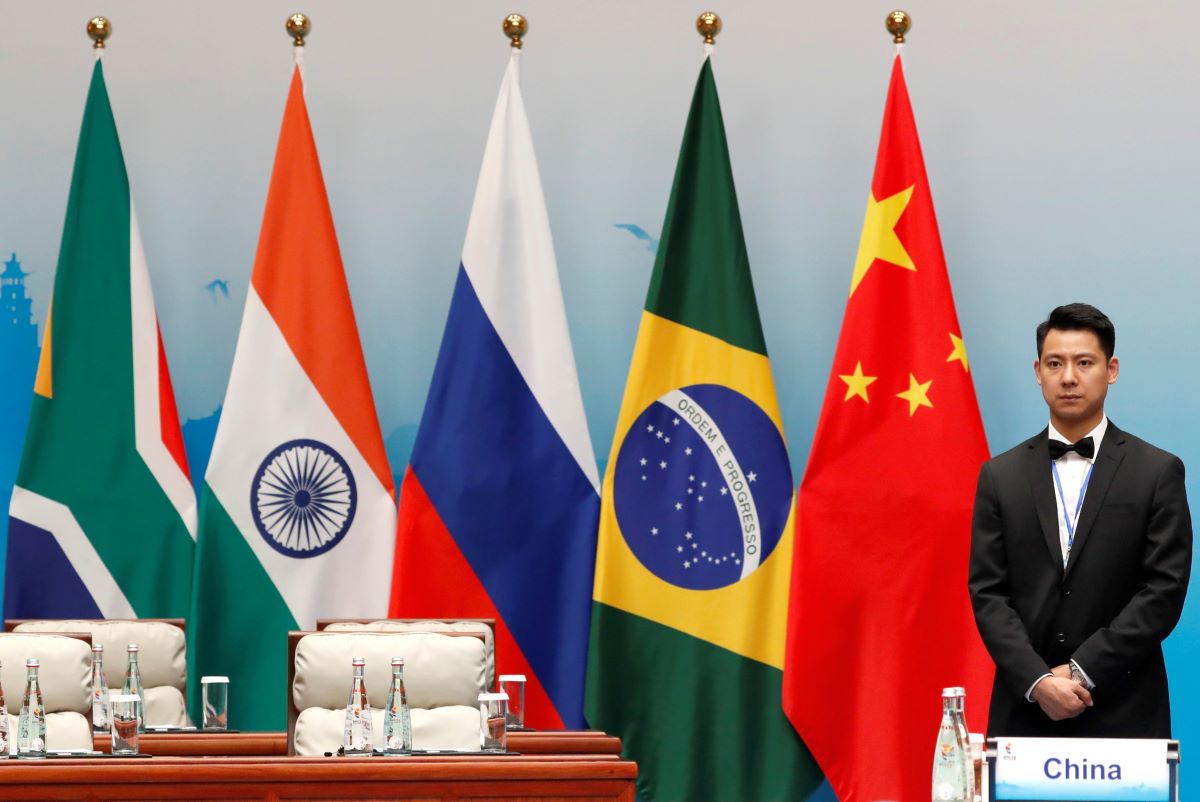- The BRICS currency, which is reported to be in development, is said to be backed by 40% gold and 60% local currencies.
- The currency is disclosed to be apolitical and would be outside the “circumference” of the SWIFT payment network.
The much anticipated BRICS currency, which would be the principal driving force at the heart of the de-dollarization strategy, could be on the table at the upcoming summit in October. According to experts, this kind of development could largely erode a significant portion of the US dollar dominance as several other developing countries show their willingness to join the alliance. Even before that, details of the expected BRICS currency have started leaking as reports establish that the potential currency could be based on a “basket” of 40% gold reserves and 60% BRICS sovereign nation currencies.
According to the details, the regional currencies that could be involved are the Chinese yuan, Russian ruble, and Indian rupee. Interestingly, this report aligns with the alleged outcome of a recent meeting between Russian President Vladimir Putin and the Head of the BRICS New Development Bank (NDB). In our review of a publication by a Russian news platform, it was discovered that shareholders directed the NDB to prioritize the new digital currency to facilitate trade and avoid Russian sanctions.
Some Exclusive Details Around the BRICS Currency
According to the report, Russia is facing limitations as its trade volume among certain members remains one-sided. A typical example is Russia’s possession of excessive rupees received in exchange for energy, such as oil and gas, with India. In this case, backing the BRICS currency with gold and local currency could provide enough stability and take care of the exchange rate fluctuations. Conversely to the US dollar, the BRICS currency would be apolitical and transactional and operate externally from the SWIFT payment network.
According to reports, the West can only distract this arrangement by sanctioning currencies such as the Chinese RMB and the Indian Rupee. Unfortunately, this could negatively impact the Western economy as the trade between these two countries and the US and EU amounted to around $1.56 trillion last year.
According to experts, an attempt to impose sanctions could cause serious inflation and recession in the West. Meanwhile, the NDB shareholders include Brazil, India, China, and South Africa, and Bangladesh, Egypt, the UAE, and Uruguay have joined them. More than 30 other countries have expressed interest in joining the alliance.
Amid the ongoing developments, enthusiasts have highly recommended Bitcoin, XRP, and other cryptos for consideration for their democratic qualities. Already, countries like El Salvador have declared Bitcoin a legal tender and the process could be keenly studied by the BRICS nations. However, no official announcement on this possibility has ever been made.
Commenting on the impact of these developments, the founder and CEO of Zang Enterprises, Lynette Zang, recently disclosed in a CNF report that the US Dollar’s dominance has reduced to 3% and could dwindle to zero in 2025.
I believe with all my heart and everything that I know that we’ve already begun the transition to hyperinflation. We’re going to see more borrowing, more money printing, and more inflation because they have not killed that beast that they created and continue to create. It’ll become very obvious in 2025.
Recommended for you:
- Buy Bitcoin Guide
- Bitcoin Wallet Tutorial
- Check 24-hour Bitcoin Price
- More Bitcoin News
- What is Bitcoin?
Subscribe to our daily newsletter!
No spam, no lies, only insights. You can unsubscribe at any time.




